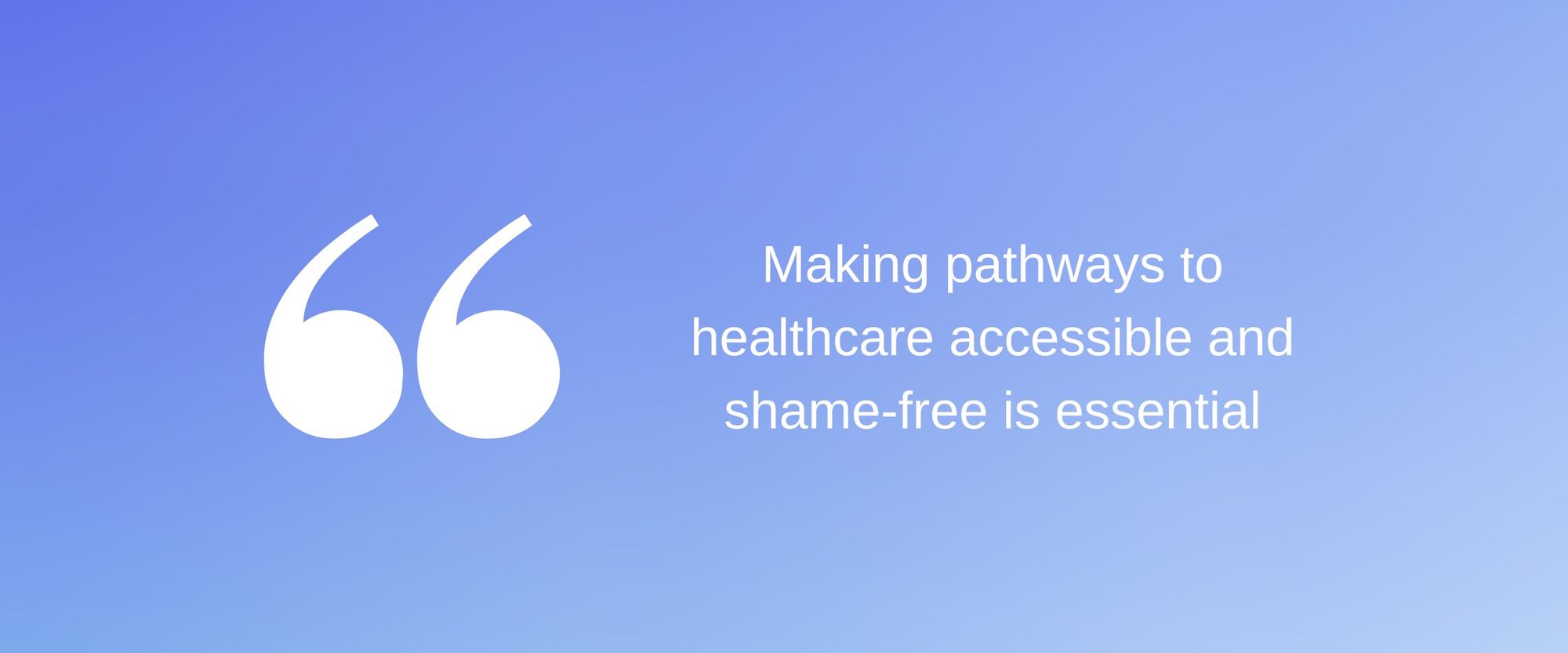Is taking down barriers to men’s health the good news we were hoping for?
updated on Mar 23, 2023

Psychotherapist Jeremy Sachs weighs up the pros and cons of a shift to easily accessible healthcare options
Pfizer has been in the media a lot in recent times, as one of the giant pharmaceutical companies that produced the Covid-19 vaccine. However, it is not the first time the company has made headlines. In March 2018, it announced that, for the first time, Viagra would be available as an over-the-counter drug, rather than on prescription. This meant any adult male in the UK could walk into a chemist, go to the counter, and – provided they answered basic health questions (disease history, blood pressure, history of fainting, etc.) – they could walk out with Viagra.
For those not familiar with it, Viagra is the name of a drug that treats erectile dysfunction (ED) – the inability to get and/or retain an erection firm enough for sex with another person, or by oneself.
Roughly a year after this over-the-counter Viagra became available, I was killing time on social media, and I noticed a shift in advertising algorithms. One ad, in particular, was especially aggressive, flashing images edited together with bright, jazzy music. It featured a man holding a huge fishing rod at 45 degrees, with an ecstatic facial expression. The following image was a large cactus, then a hand holding a corncob, next it was the Shard in London, which cut to black and the words: “Order clinically proven ED treatments online, no need to leave your home.” More images followed: a lighthouse, a train entering a tunnel, “Discreetly delivered the next day,” fireman up a ladder spraying a hose… it goes on. “What did I Google?” I asked myself.
That same week, a bus drove past me. The ad said, “Is stress getting you down?” The word ‘down’ was curved downward. It was an ad for an online private company selling Viagra. Suddenly, my digital and physical world wanted me to know that I could get Viagra without having to speak to another living being. But is that the good news it’s sold as?
Men’s health: a snapshot
In the UK, men aged 20–40 go to the doctor or pharmacy half as much as women, as reported by the charity Men’s Health Forum. Men across all socioeconomic groups demonstrate unhealthier smoking practices, unhealthier dietary patterns, higher alcohol consumption levels, and higher rates of injuries, according to the World Health Organization, and one in five men die before collecting their pension at 65. This is not to mention mental health, where the Office for National Statistics states that males aged 45–49 continue to have the highest suicide rate. Yet only 36% of referrals to NHS Increasing Access to Psychological Therapies (IAPT) are men.
There are complex and societal reasons why men’s health is so bad. Well-known contributors tend to include low health literacy, toxic ideas of masculinity, and social stigma around mental, sexual, and intimate health.
So, surely, buying ‘embarrassing’ medication online helps men get treatment? On one hand, making pathways to healthcare accessible and shame-free is essential. However, a significant part of healthcare is not simply access to drugs. It’s access to a healthcare professional who can assess the cause of symptoms a patient is suffering from.

There can be many reasons for ED. Some are:
- The narrowing of blood vessels in the penis
- High blood pressure or high cholesterol
- Unbalanced hormones
- Side effects from medications
- Lifestyle influences (heavy use of drugs or alcohol)
- Depression and anxiety
- Parkinson’s disease
- Multiple sclerosis
While access to Viagra online may address a symptom (the inability to get or sustain an erect penis), it also increases the potential for men to go on living with undiagnosed and untreated illnesses. By removing a medical consultation, we remove the chance for other health conditions to be identified and addressed.
Beyond erections
This quickly becomes a far broader problem when we consider men’s health in a wider sense. Men are not good at seeking medical help, and the results of this are bleak. Online medication is a way for men to further isolate themselves from a health system, and set a precedent for men to continue ignoring their health and secretly treat symptoms in private. It de-skills a group of people who are already under-prepared to have difficult conversations about wellbeing, and themselves.
Some suppliers of online Viagra throw in the odd blog on men’s mental health, suicide rates, or depression written by someone in the comms team. This tokenistic nod barely scratches the surface of what society needs if we want men to stop dying of suicide and preventable diseases.
We need to create spaces for men that help develop health literacy, and conversations about awkward and stigmatised topics.
We need accessible pathways to healthcare professionals who are socially aware. We need to have conversations in our communities. We can’t rely on pharmaceutical companies with trendy marketing teams to offer quick fixes at the cost of further isolation.
Taking action
Here are some resources aimed to support people with some of the issues raised in this article:
Sexual dysfunctions or sexuality:
-
Love Worth Making: How to Have Ridiculously Great Sex in a Long-Lasting Relationship by Stephen Snyder. Yes the title is very sensationalist, but it is accessible, knowledgeable, and recommended by lots of psychosexual therapists.
-
The New Male Sexuality by Bernie Zilbergeld.
This book is 20 years old, and very heteronormative, however, it’s still a good book detailing men's experiences of sex, relationships, and sexual problems, along with how to overcome them.
Social/support groups for men:
-
Andy’s Man Club
A men’s mental health charity offering free-to-attend talking groups for men, and challenging the stigmas around male mental health, with 69 groups across the UK (andysmanclub.co.uk). -
The Man Kind Project
A charity for men that hosts different types of events, from drop-ins to training days (mankindprojectuki.org). -
Misery Club
A mental health harm reduction collective, and sober club night centring on healing for queer/trans/nb people and BPOC. Follow @miseryparty.
Psychological support:
-
My website.
Find lots of podcasts, sheets, and articles on trauma and health at jeremysachs.com -
SurvivorsUK
This charity helps male victims of sexual abuse, as well as their friends and family, no matter when the abuse happened
(survivorsuk.org). -
NHS urgent mental health care finder
(www.nhs.uk/service-search/mental-health/find-an-urgent-mental-health-helpline)
If you would like to seek support, visit the Counselling Directory or speak to a qualified counsellor.

